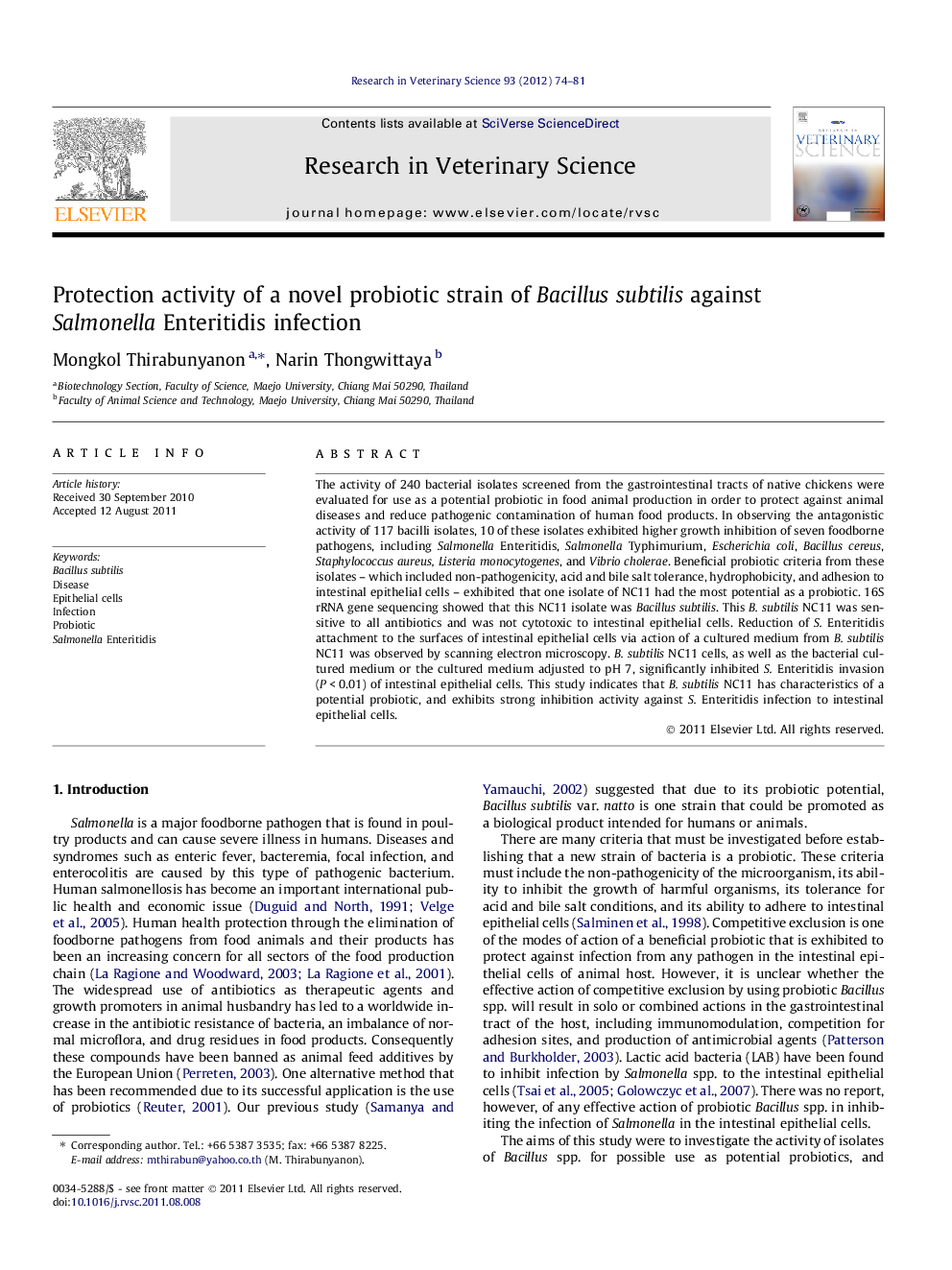| Article ID | Journal | Published Year | Pages | File Type |
|---|---|---|---|---|
| 2455393 | Research in Veterinary Science | 2012 | 8 Pages |
The activity of 240 bacterial isolates screened from the gastrointestinal tracts of native chickens were evaluated for use as a potential probiotic in food animal production in order to protect against animal diseases and reduce pathogenic contamination of human food products. In observing the antagonistic activity of 117 bacilli isolates, 10 of these isolates exhibited higher growth inhibition of seven foodborne pathogens, including Salmonella Enteritidis, Salmonella Typhimurium, Escherichia coli, Bacillus cereus, Staphylococcus aureus, Listeria monocytogenes, and Vibrio cholerae. Beneficial probiotic criteria from these isolates – which included non-pathogenicity, acid and bile salt tolerance, hydrophobicity, and adhesion to intestinal epithelial cells – exhibited that one isolate of NC11 had the most potential as a probiotic. 16S rRNA gene sequencing showed that this NC11 isolate was Bacillus subtilis. This B. subtilis NC11 was sensitive to all antibiotics and was not cytotoxic to intestinal epithelial cells. Reduction of S. Enteritidis attachment to the surfaces of intestinal epithelial cells via action of a cultured medium from B. subtilis NC11 was observed by scanning electron microscopy. B. subtilis NC11 cells, as well as the bacterial cultured medium or the cultured medium adjusted to pH 7, significantly inhibited S. Enteritidis invasion (P < 0.01) of intestinal epithelial cells. This study indicates that B. subtilis NC11 has characteristics of a potential probiotic, and exhibits strong inhibition activity against S. Enteritidis infection to intestinal epithelial cells.
